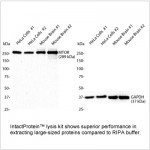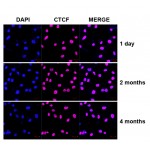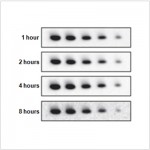| Reactivity: | H,M,R & H & H |
| Applications: | WB & IHC/IF & ICC/IF |
| Host Species: | Rabbit |
| Clonality: | Polyclonal |
| Gene Name: | Yes1 associated transcriptional regulator |
Synonyms: | 65 kDa Yes associated protein, YAP, YAP1, YAP2, YAP65, YKI, Yorkie homolog |
Immunogen: | Recombinant protein corresponding to Human YAP1 |
Uniprot ID: | P46937 |
Isotype: | IgG |
Purity: | Affinity purification |
Subcellular location: | Nucleus, Cytoplasm |
Predicted MW. / Observed MW. | 48-54 kDa / 78 kDa |
Product Usage Information
WB | Human, Mouse, Rat | 1: 500-1: 1000 | kidney, lung |
IHC/IF | Human | 1: 1000-1: 1500 | liver cancer, colon cancer, endometrial cancer |
ICC/IF | Human | 1: 500-1: 1000 | HeLa |
Background
This gene encodes a downstream nuclear effector of the Hippo signaling pathway which is involved in development, growth, repair, and homeostasis. This gene is known to play a role in the development and progression of multiple cancers as a transcriptional regulator of this signaling pathway and may function as a potential target for cancer treatment. Alternative splicing results in multiple transcript variants encoding different isoforms.
Images
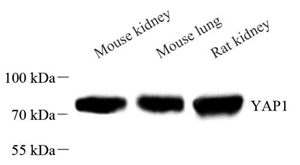 | Western blot analysis of YAP1 (GB113975) at dilution of 1: 1000 |
 | Western blot analysis of YAP1 (GB113975) at dilution of 1: 1000 |
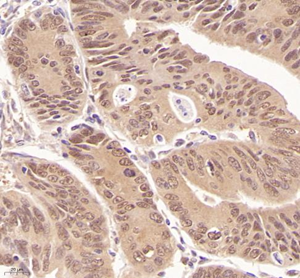 | Immunohistochemistry of paraffin embedded human colon cancer using YAP1 (GB113975) at dilution of 1: 3000 (400x lens) |
 | Immunohistochemistry of paraffin embedded human endometrial cancer using YAP1 (GB113975) at dilution of 1: 3000 (400x lens) |
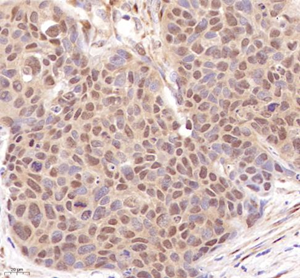 | Immunohistochemistry of paraffin embedded human esophageal cancer using YAP1 (GB113975) at dilution of 1: 3000 (400x lens) |
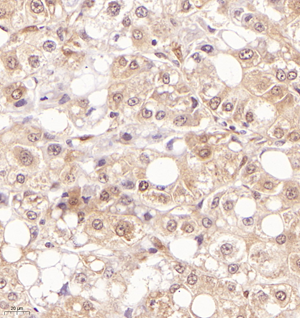 | Immunohistochemistry of paraffin embedded human liver cancer using YAP1 (GB113975) at dilution of 1: 3000 (400x lens) |
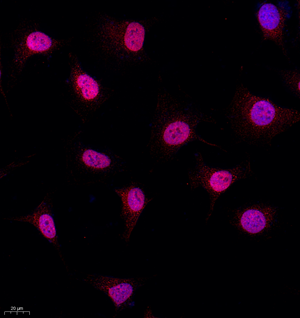 | Immunocytochemistry analysis of 4% paraformaldehyde-fixed HeLa cells using YAP1 (GB113975) at dilution of 1: 1500 (400x lens) |
Storage
| Storage | Store at -20°C for one year. Avoid repeated freeze/thaw cycles. |
| Storage Buffer | PBS with 0.02%sodium azide,100 μg/ml BSA and 50% glycerol. |

